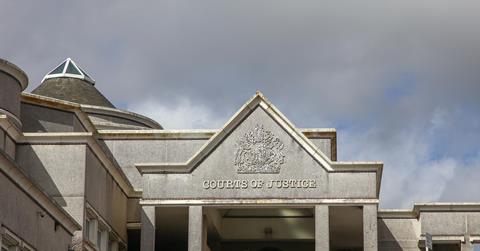In January 2024, Truro became one of 16 additional courts across the country where the reporting of family court cases by journalists is permitted as part of the Transparency Implementation Group Reporting Pilot (TIG).
In a nutshell, this initiative turns on its head the established family court practice of reporting sanctions, and instead puts the onus on the lawyer to request serious sanctions if there are concerns about how reporting might impact a case, or the individuals involved.
The extension of the pilot seeks to explore the impact of reporting on various elements of the family court; the courts themselves, the judges and those involved in proceedings. It also looks at the impact on the media. While initially the reporting was confined to public law cases, this has recently been widened to include private law proceedings.
This new transparency could, in theory, improve public opinion of the court process and access to justice. If the courts are seen to ensure that justice has been carried out, the public is likely to consider justice to have been done. But we must remember that some cases that go before the court involve significant safeguarding concerns to adults and children, ranging from domestic abuse, sexual assault and violence to neglect and various mental health issues, as well as more general disagreements regarding living arrangements or day-to-day care.

Potential benefits
Additional court reporting could well publicly highlight problems within the social system in relation to family court cases, especially the struggles the court and professionals face when trying to source much-needed services which are simply not available, causing significant delay and possible harm. For example:
- Where children are being placed in secure accommodation centres but there is such a lack of facilities that they are sent to unregulated places.
- When a child with significant needs, who requires three adults to provide the necessary care, is sent far from home as nothing is available closer.
- The lack of Cafcass officers and guardians who are imperative to the children’s voice in proceedings.
- The shortage of foster placements or residential placements when trying to keep children safe and the dearth of contact centres to enable children to maintain ties with their parents or family.
- The difficulties around legal aid availability leading to more unrepresented parties.
Additionally, with both lawyers and judges aware of the potential for reporting, hearings, evidence and judgments might be more carefully considered, with lawyers and judges encouraged to think ‘outside the box’ rather than opt for a standard approach to certain cases.
Increased reporting could actually give rise to more creative ways of using the law to achieve the best outcome for all parties, particularly any children involved who so often are the survivors of their parents’ battles.
Read more
Potential negatives
The main concern I hear voiced among lawyers is the threat to privacy that this pilot might pose, in particular with regard to children. Courts should not lose focus on the confidential issues and rights that everyone is entitled to. Can it ever be in a child’s best interest to have their life experiences splashed over the media, as often seen in celebrity divorces? Once in the public arena, this personal information remains extant for all to see. The child has to live with those reporting decisions and may well be able to access details about their parents’ lives they might otherwise not be able to.
Moreover, if they feel concerned that details of their lives will be publicly shared, there is a risk that some parties will feel unable to engage in proceedings openly and honestly, which could lead to people losing their ‘voice’ and having no confidence in the system. Few people really want their intimate and traumatising experiences broadcast to the world through reporting and social media.
Of course, in cases involving acrimony and potentially abusive behaviour, perpetrators, knowing they have a platform from which to pursue their desired outcomes, may continue or even increase their activity.
And if a party does not achieve the outcome they expected, there is also greater opportunity for open criticism of professionals, which could lead to an increase in complaints and even vendettas.
For this pilot to work there needs to be a clear understanding by all about what should be reported in the public interest. It is vital that serious sanctions remain. In so many cases it is not in anyone’s interest for details to appear in the public domain.
Impact of the reporting pilot so far?
At the time of writing, there has been only one generalised request in the Truro family court, so there has been minimal impact on the local legal community. But across the country there has been a much wider effect, with public and private law cases broadcast via the BBC news website, national newspapers and journals, and even a mini-series on Radio 4. Undoubtedly, lawyers are having to be even more on the ball and parties made aware that reporting could take place, even last minute.
Ultimately, increased court reporting may well lead to more use of alternative dispute resolution methods, where personal details can be kept out of the public eye.
Conclusion
It will take time to fully understand the benefit and impact of the pilot, which will almost inevitably continue to evolve as we seek to manage ever-changing challenges with safeguarding concerns.
However, on the upside, the pilot will hopefully provide reassurance to the public that justice must be applied equally to everyone, that it is fair, without bias and should be available to all.
It seems to me that now the door has been opened to reporting, it will be hard, if not impossible, to backtrack and will eventually become standard in every court.
Natalie Symons is legal executive of The Family Law Company, Truro office
































1 Reader's comment